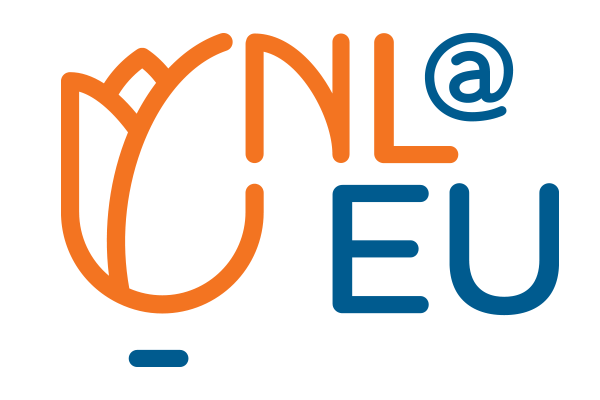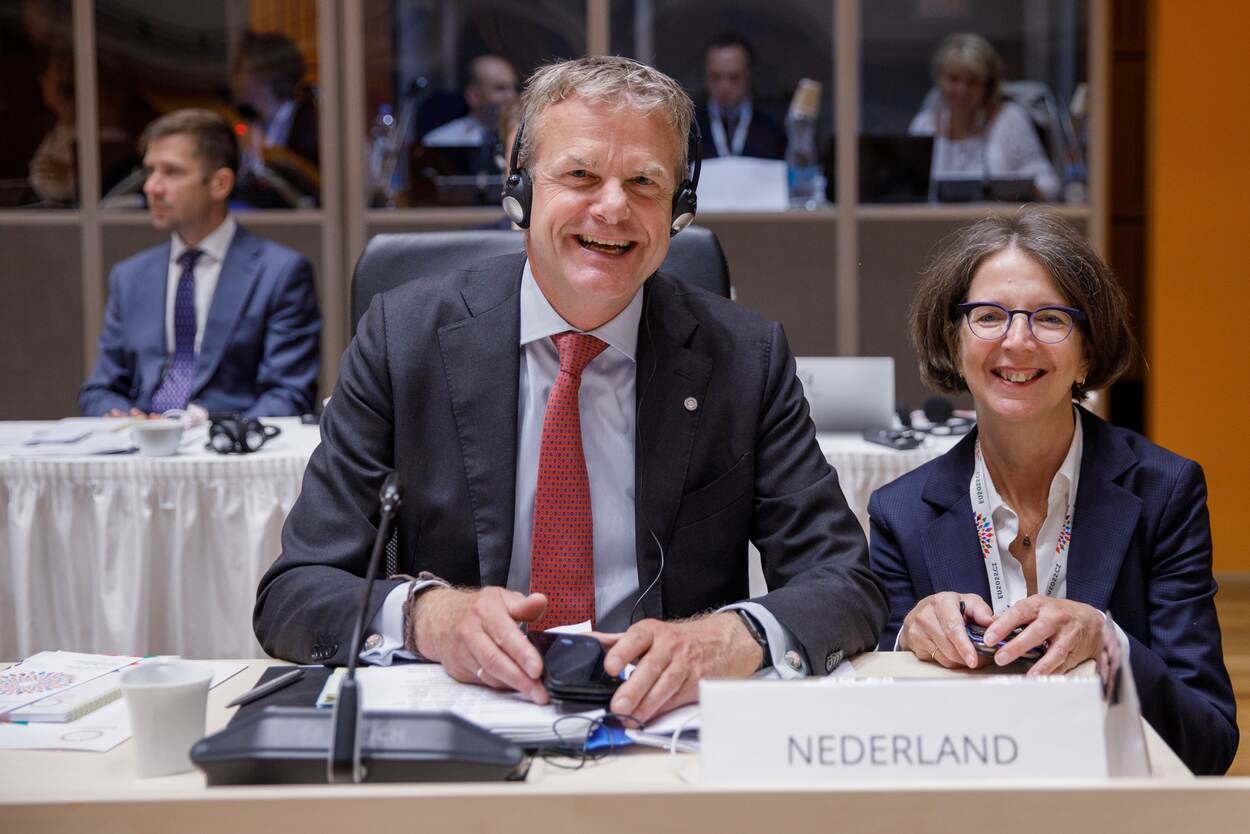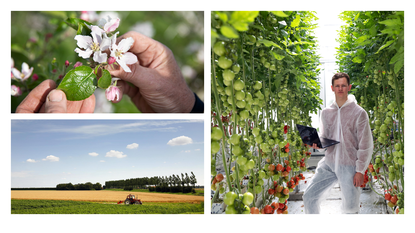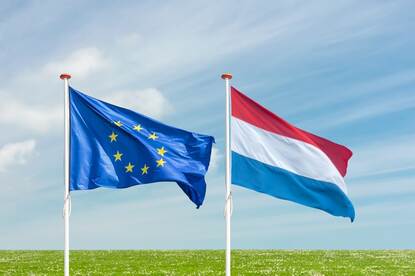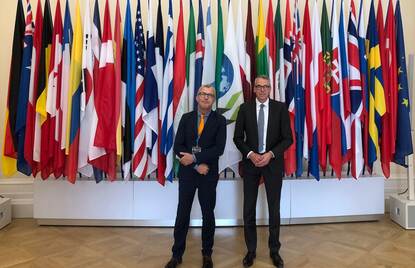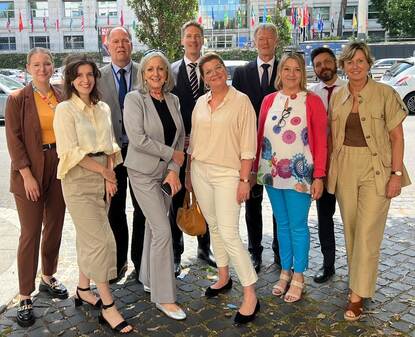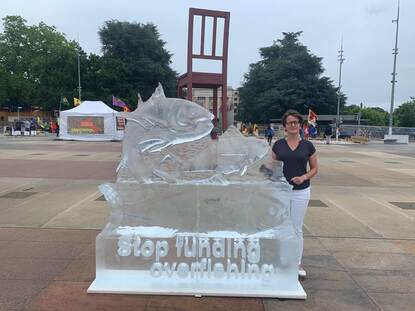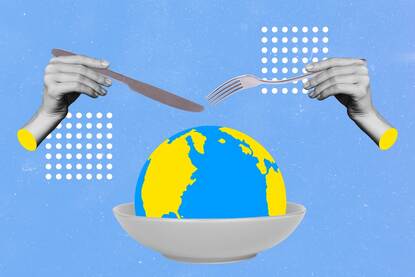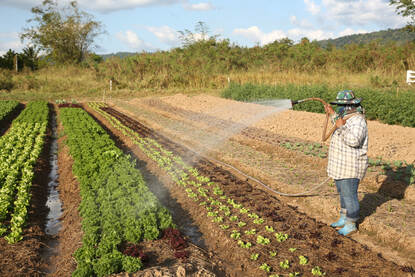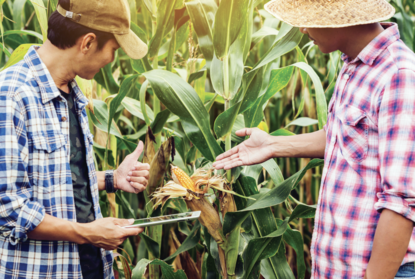Foto F.l.t.r. Guido Landheer Director of European, International and Agro-Economic Policy at the Ministry of LNV and Carla Boonstra, LNV counselor
Carla Boonstra is Agriculture, Nature, and Food Quality (LNV) counselor at the Permanent Representation of the Netherlands (PermRep) to the European Union (EU). In plain English, that means that she talks to other Member States, the European Commission, and other important actors to ensure that Dutch positions in the field of agriculture are well represented. In this Agrospecial, she elaborates on her work. ‘The major challenge is to engage in dialogue if you do not agree and try to understand the rationale behind someone's position.’
What does the work of an LNV counselor at the PermRep of the Netherlands to the EU entail?
‘I lead the Netherlands Agricultural Network (LNV Attaché Netwerk in Dutch) team at the PermRep of the Netherlands to the European Union. Also, I am the LNV counselor at the Embassy of the Netherlands in Brussels, covering Belgium and Luxembourg. However, most of my time is spent at the PermRep. The core of my work is being the spokesperson for the Netherlands in the Special Committee on Agriculture (CSA). The CSA prepares the work of the Agriculture and Fisheries Council, particularly on all files related to the Common Agricultural Policy. The Agriculture and Fisheries Council is the council of agriculture and fisheries ministers that meet monthly to discuss recent developments and which serves as a platform for decision-making.’
‘The CSA and the Agriculture and Fisheries Council are about political decision-making. Thus, a significant part of my time is spent on impacting policy. That means I am talking a lot to other Member States, the European Commission, and other important actors to ensure that the Dutch positions in the field of agriculture and fisheries are well presented. At the same time, I observe the direction of other countries to advise the minister of LNV and align Dutch efforts accordingly.’
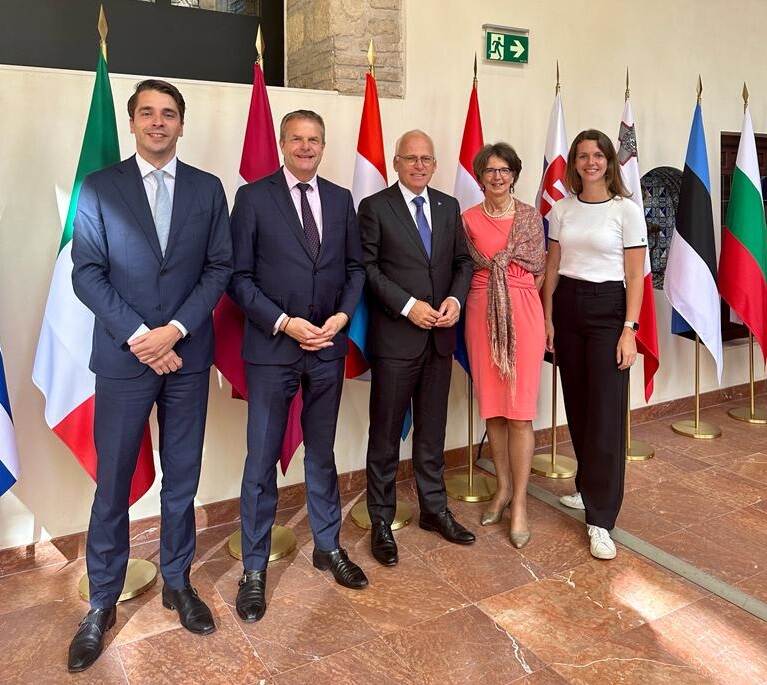
What does your average workday look like?
‘Describing my workdays, is quite difficult as there is no fixed schedule. To be honest, no day is the same. I always start with a list of tasks, but it never takes long before I am caught up in the events of the day. Yesterday, for example, the minister of LNV was here to discuss one of our dossiers at the Commission. I usually prepare for those visits, not just in terms of what the minister should say but also how to address certain issues most effectively. This involves pre-meetings with officials, which go as follows: the minister is coming, this is roughly the agenda, this is what we are going to say and advocate for. And, of course, I also accompany the minister to make sure whether a follow-up is needed.’
‘Let me give you another example: we happen to have someone visiting from the Nature Directorate of the Ministry of LNV. Together, we will visit the Commission to discuss certain dossiers and the position of the Netherlands. One of the dossiers, for instance, concerns RENURE (REcovered Nitrogen from manURE), which is essentially a substitute for artificial fertilizer from animal manure. A few weeks ago, Prime Minister Mark Rutte sent a letter to the President of the European Commission Ursula von der Leyen asking whether the Netherlands – against the backdrop of the farmers’ protests and the wish lists of other member states – can start using RENURE in the short term. I have been actively involved in following up on Mark Rutte's plea to Ursula von der Leyen in recent weeks. This involves talking to the Commission on one hand and seeking support from other member states on the other.’
How is the collaboration with external stakeholders?
‘I believe it's well known that Brussels is full of lobbyists. As a result, we receive many requests from people and organizations wanting to talk to us. We try to accommodate them as much as possible because it's part of our work. The information we gather this way is reported back to The Hague.’
‘Furthermore, we may collaborate with certain stakeholders to highlight a particular issue we find important with the aim to put it on the EU’s policy agenda, for instance, with the European Commission, other member states, or other stakeholders. Last year, we organized a seminar together with a bank, a representation of a Dutch farmers' organization, and Wageningen University & Research on true cost accounting. The question was: how can you incorporate the cost of externalities in agriculture into the price consumers pay for certain products? In plain English, the costs for a farmer to contribute to maintaining public services such as biodiversity, bird populations, clean air, and clean water.’
What do you find satisfying about your work?
‘What I find truly fascinating is the political game being played. With the upcoming European elections, this is becoming increasingly important. I find it intriguing to see what is happening here in Brussels right now. You can see how individual interests are prioritized over more general ones.’
‘And on a more personal note: leading my team. It currently consists of seven people, including me. The other colleagues are Attaché Phytosanitary and Veterinary Affairs Ata Vahdatzade, Attaché Nature and Biodiversity Lisa van den Boogaard, Fisheries Attaché Carian Posthumus Meijjes, LNV-attaché Anne-Margreet Sas, central government trainee Anh Nguyen and Policy Support Officer for the Agricultural Team Bénedicte Smeenk. And on the bilateral side there are our Agricultural Advisor Caroline Schauvlieger and Policy Support Officer Ilse van den Akker. One team, two clusters that work flawlessly work together. It's truly a team of excellent professionals, and I am very proud of them.’
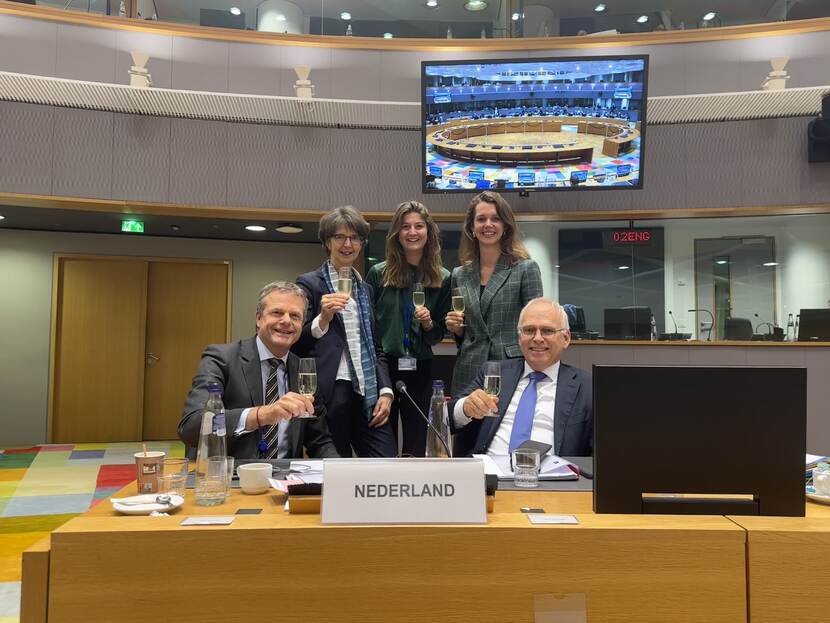
Are there any challenges?
‘It's easy to say: okay, I'll look for like-minded member states and align with them. But, I think a big challenge is engaging in dialogue if you don't agree and trying to understand the rationale behind someone's position. After all, by better understanding each other's positions, you can work towards a solution. That's where I find the energy and drive to make progress on our dossiers.’
‘Admittedly, that is difficult sometimes. Everyone has their own frame of reference. And you can't blame someone for having a different frame of reference. Take the discussions about new genomic techniques, for example. These are molecular breeding techniques for modifying the genetic material of an organism. Opponents have an idealized image of agriculture: a small farm, picturesquely in the Alpine meadow. If you don't take that into account, negotiating becomes very difficult.’
‘What are the effects on everyday life of what we think and decide in meeting rooms in Brussels?’
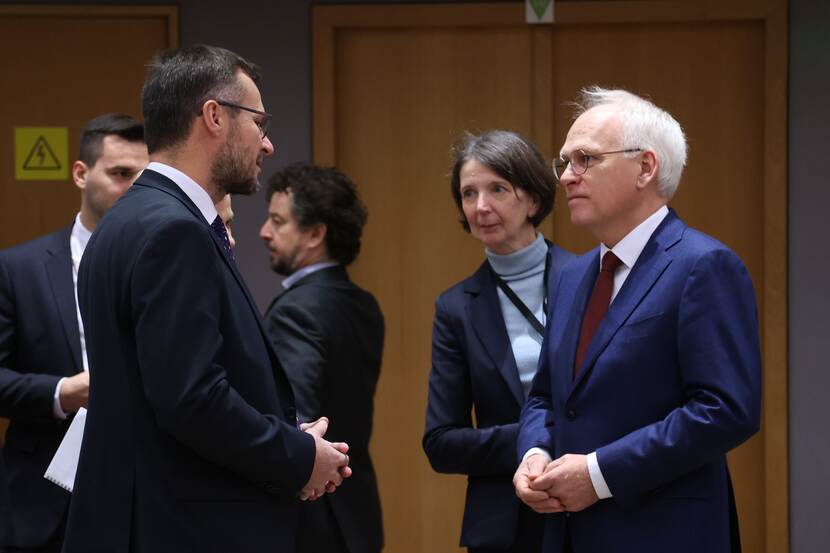
Which dossiers will dominate your agenda in the coming period?
‘We are currently focused on RENURE. And, of course, there are the farmers’ protests. The Commission is coming up with various proposals to address farmers' concerns: how can you reduce the burdens and regulations for them. Decisions need to be made quickly, because the mandate of the Commission and the European Parliament will expire soon.’
Sometimes Brussels seems like an ivory tower. Is it difficult to stay in touch with what goes on in the field?
‘As LNV counselor for Belgium and Luxembourg, my work is much more hands-on. The beauty of this is that I see firsthand what EU regulations do to farmers. And that provides important feedback for me. It's not just about talking about farmers but also talking to them. What are the effects of what we think and decide in meeting rooms in Brussels? How do these decisions affect everyday life? I think that's very valuable feedback to our decision-making processes. Because you must be able to implement policies for them to be effective.’
Read more
- Permanent Representation to the EU is the backbone of national interest in Brussels
- Busy times ahead for PermRep to the EU before European elections
Contact
- Address: Permanent Representation of the Netherlands to the European Union, 4-10, Avenue de Cortenbergh, 1040 Brussels, Belgium
- Phone: 0032 02 679 1545
- E-mail: bre-lnv@minbuza.nl
- LinkedIn: Carla Boonstra
- Website (in Dutch): Permanente Vertegenwoordiging van Nederland bij de EU
- Website (in English): Permanent Representation of the Netherlands to the EU
